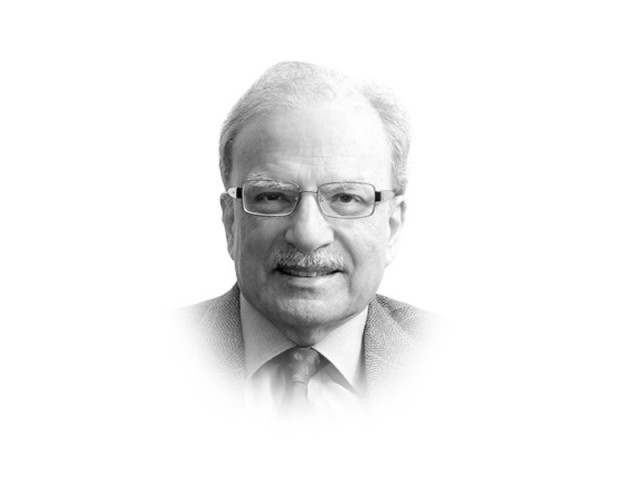The state’s response to terrorism
A clear message has to be given to everyone that any defiance of the state’s authority will not go unpunished.

The writer is a former caretaker finance minister and served as vice-president at the World Bank
There is now recognition that the rise of extremism has been very costly for the economy. There is also now appreciation that the efforts to revive the economy will come to naught unless extremist forces are brought under control and peace returns to all parts of the country. There are examples from other parts of the world to show that prevalence of widespread violence has a highly negative impact on economic progress. It is only by bringing it under control that a stalled economy can be made to move again. What economic historians have called the lost decades in Latin America — the 1980s and the 1990s — were in large part the consequence of uncontrolled (and for some time it appeared to be uncontrollable) violence. What should be the main elements of the state’s strategy aimed at checking the rise of extremism? I believe that it should focus on at least the following six policy sub-sets.
First, a clear message has to be given to all segments of society that any defiance of the state’s authority and the laws of the land will not go unpunished. This is the reason why negotiating with those who have systematically defied the state can be counter-productive. It shows that the state does not feel it has the strength to enforce the laws on which its own existence depends. The state cannot play cricket as was suggested by the interior minister, probably in jest, with those who are operating outside the established legal order.
Second, the public should be provided with full information about the various aspects of extremism. For some reason, the interior ministry has chosen to keep under wraps the report it has completed and parts of which have been discussed in the National Assembly. Making it public will increase the awareness of the citizenry about the damage extremism has already caused. Increasing this awareness will also prepare the public for the problems it will have to deal with at an early phase of a well thought-out plan against extremism. Terrorists are bound to hit back hard once they come under pressure from the security forces.
Third, it should be recognised that the rise of extremism was the consequence of the weakening of the state. In this context, the meaning of the state has to be given a wide interpretation. It should include not only the working of the executive branch, but also the judiciary. Lower-level judiciary has not played a constructive role in enforcing the laws that terrorists routinely violate. Terrorists and extremists have been able to intimidate magistrates and judges. The March 3 attack on Islamabad’s district court will further make the judiciary more hesitant to deal with terrorism.
Fourth, maintenance of law and order has to be the responsibility of the police and experience in the developed parts of the world indicates that only those police forces are effective that are responsible to the elected local authorities. In Pakistan, police’s management is highly centralised with little stake in preserving peace in local jurisdictions to which its personnel are sent. In Punjab, for instance, the provincial police force is under the control of the Inspector General, an official, located in Lahore and belonging to the Police Service of Pakistan.
Fifth, it should be clearly indicated to all citizens that changes in the state’s structure and the laws and regulations on which they are based can only be brought about as a result of legislative action. The use of force cannot be accepted as the means for achieving this end. This means that the Constitution is a document to which all citizens must pay total respect.
Sixth, the government must get as close to the people as possible. Even the provincial governments are too far from the local communities to be effective in delivering the services citizens demand. A serious and sustained effort needs to be made to satisfy people’s aspirations. In a society where the youth account for a significant proportion of the total, opportunities have to be created to provide productive employment. It is only community-based organisations that can develop and implement programmes for the economic and social uplift of the local population.
These are some of the elements that should be incorporated in a comprehensive strategy to deal with the scourges of extremism and terrorism. That should be the focus of the government’s attention rather than pinning hope on getting the terrorists to abandon their activities against the state and the citizenry. There is a very small likelihood that the latter will come to pass.
Published in The Express Tribune, March 10th, 2014.
Like Opinion & Editorial on Facebook, follow @ETOpEd on Twitter to receive all updates on all our daily pieces.














COMMENTS
Comments are moderated and generally will be posted if they are on-topic and not abusive.
For more information, please see our Comments FAQ